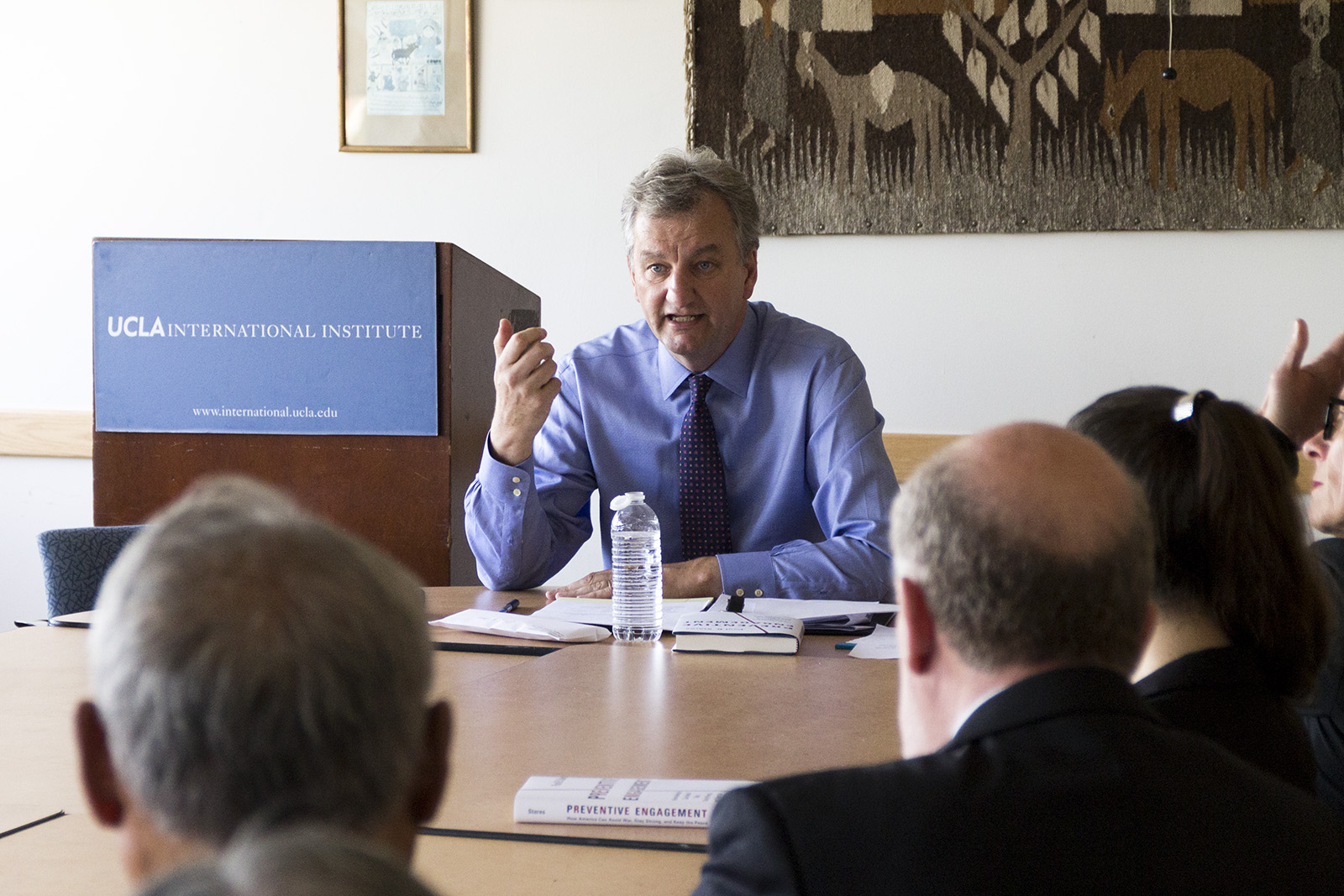Conflict specialist discusses US foreign policy at UCLA event

Paul Stares, a a fellow at the Council on Foreign Relations, spoke about preventative engagement at an event hosted by the UCLA Burkle Center for International Relations on Monday. (Emma Skinner/Daily Bruin)
By Cade Mallett
Nov. 14, 2017 1:52 a.m.
A conflict specialist said Monday he thinks the United States sometimes makes risky decisions while addressing international conflicts.
Paul Stares, a fellow at the Council on Foreign Relations, a nonprofit think tank specializing in U.S. foreign policy, spoke on campus to about 25 UCLA students and members of the public about how the U.S. can fulfill its responsibilities as a global superpower without overcommitting to outside conflicts. The event, which was a part of International Education Week, was sponsored by the UCLA Burkle Center for International Relations.
Stares said he thinks modern international politics are shifting toward war posturing, using displays of military force in place of diplomacy, and that there could be multiple wars in the future.
“We can no longer confidently assume that the 21st century will unfold in a peaceful, open way,” he said.
Stares said he thinks the U.S. is overstretching its military resources because of its international defense commitments and global policing. He added the United Kingdom’s power declined after it engaged in too many conflicts in the 20th century.
However, Stares added he thinks if the U.S. does not engage abroad at all, it could create a power vacuum as other countries step in to establish a world order. Stares said if a new superpower enforces autocratic rule, the U.S. would have to engage in even greater conflict to restore American hegemony.
He said he thinks the U.S. should strategically engage in small-scale conflicts to prevent larger ones in the future, help other global powers become more stable, promote democracy and economic development in developing nations and mitigate climate change.
He feels the U.S. is being too reactive in its approach to foreign policy and ignores the advice of international policy experts like those at the Council on Foreign Relations.
“The U.S. must do a better job both thinking ahead and acting ahead,” Stares said.
Alexandra Lieben, deputy director of the Burkle Center, said she thinks the event fit the theme of International Education Week because many students who attend UCLA come from countries affected by American foreign policy.
“I think students, just like everyone else, are unsettled right now, so it’s good to hear an expert in the arena of conflict resolution for some guidance,” Lieben said.
She added she thinks the event also gave students an opportunity to step back and reassess where the U.S. stands in the scope of international politics.


